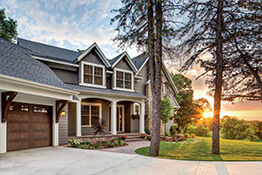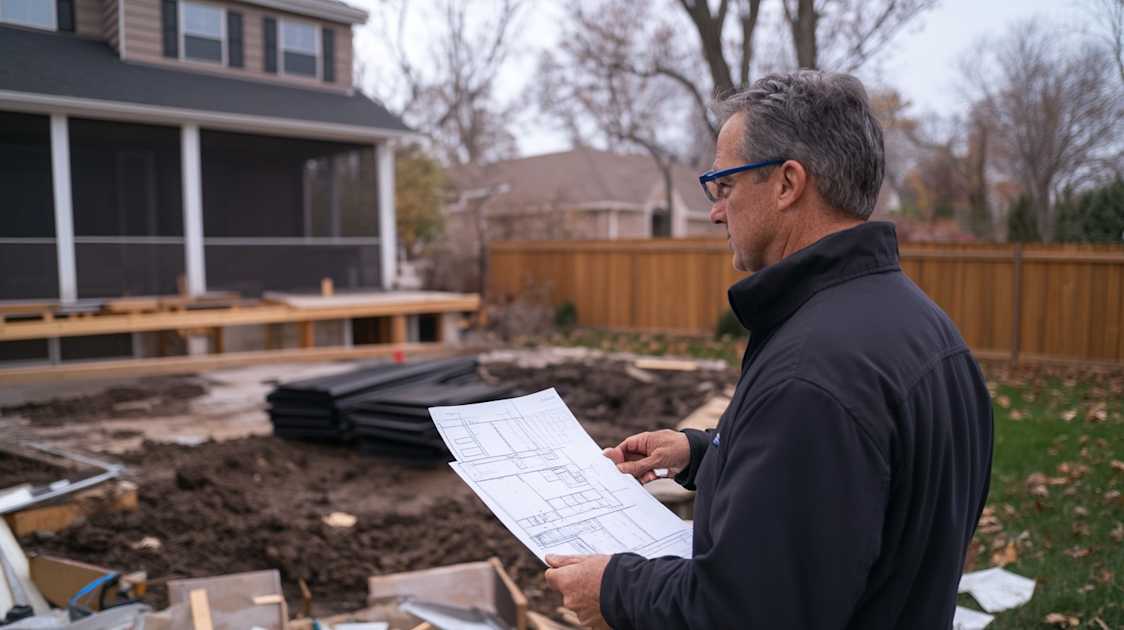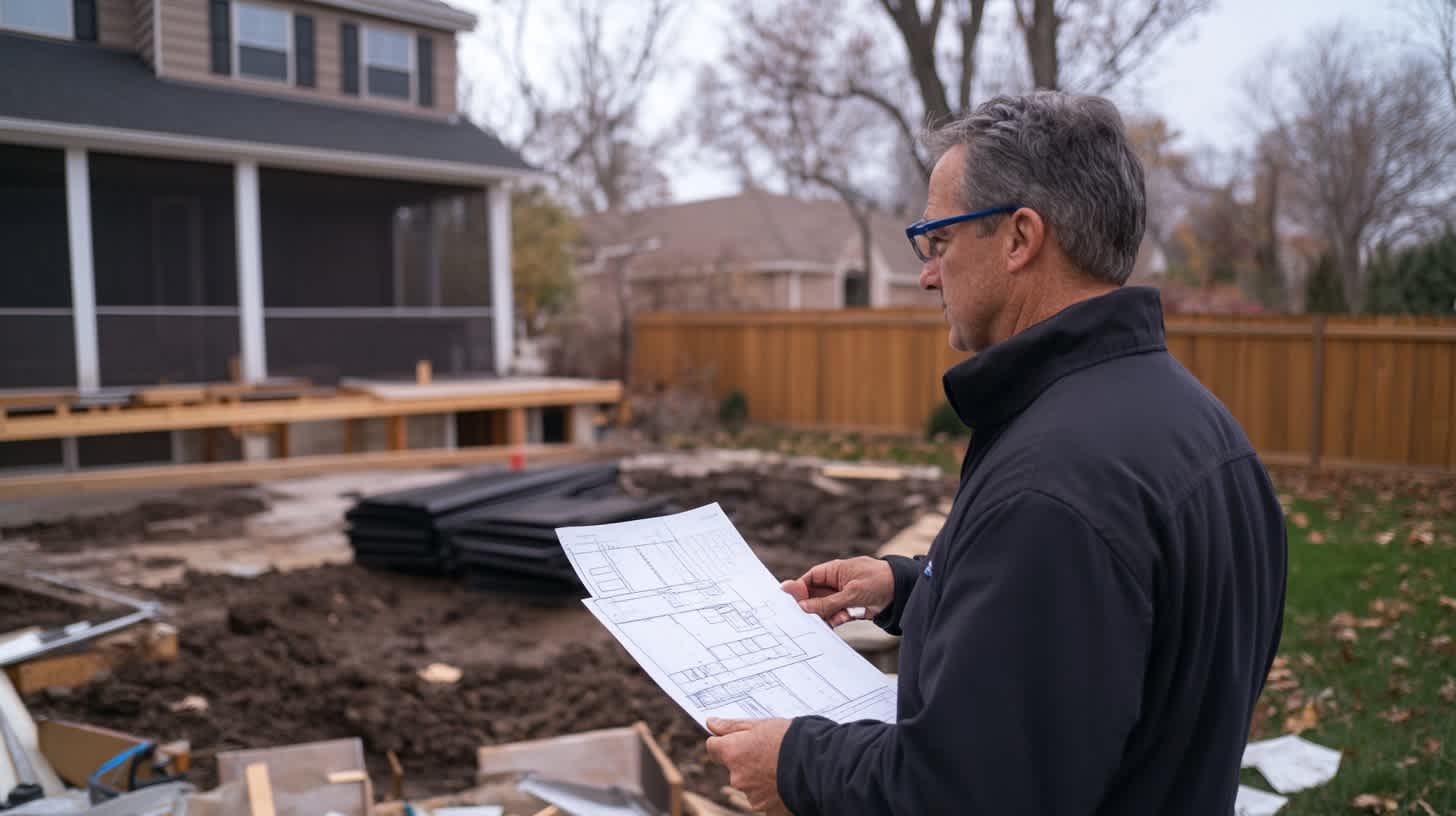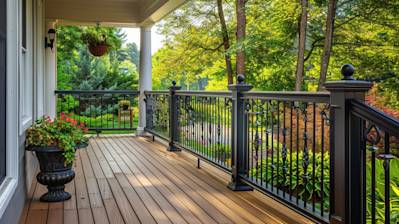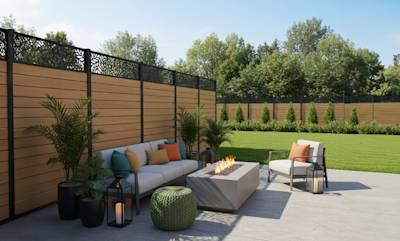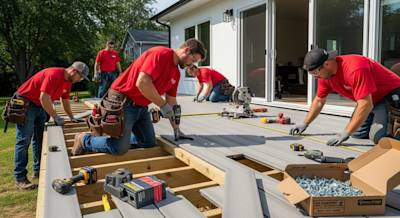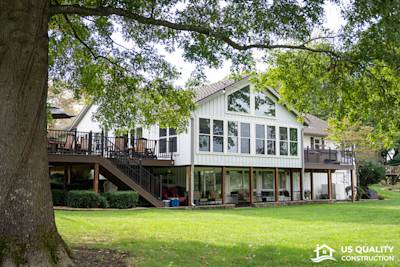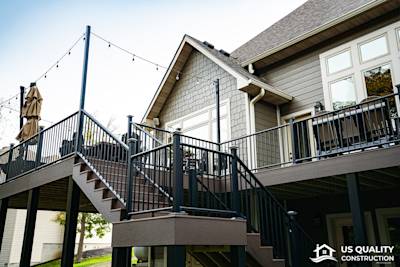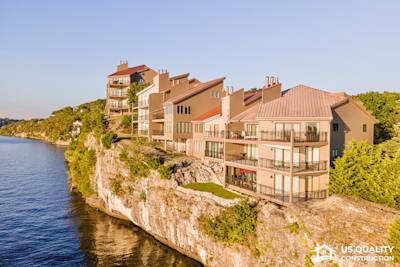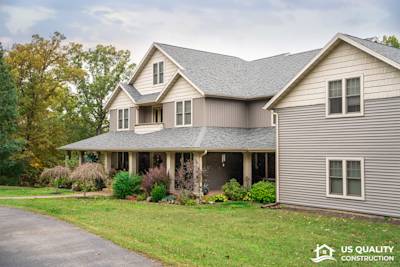Deck building is an engaging DIY project that can enhance the beauty and functionality of your home. If you're chartering into this endeavor, one of the fundamental aspects that you cannot overlook is a well-laid out deck plan. As a guide to getting the most bang for your deck-building efforts and investments, we explain why deck plans are essential and share some of the best deck designs you can adopt.
What Are Deck Plans and Why Are They Important?
Deck plans are design blueprints illustrating the size, layout, and construction guidelines for your deck. They offer precise positioning of every component, from the deck boards to railings, stairs, and features like pergolas or outdoor kitchens.
Just as you wouldn't build a house without a plan, the same goes when casting deck plans aside. These designs provide several beneficial aspects, including:
- Cost estimation: Deck plans can help you obtain an accurate cost estimate, aiding in budgeting and saving you from unexpected expenses down the line.
- Required materials and tools: Identifying the resources required in advance translates to better planning, reducing the chance of material shortage or surplus.
- Compliance with local building codes: Deck designs can aid in ensuring that your structure is in accordance with local regulations, avoiding legal complications.
Factors to Consider When Choosing Deck Plans
Understanding Your Space and Environment
Your deck should complement the size and style of your house and yard. Also, acknowledge environmental factors such as wind, sun, and shade patterns, and whether the deck is likely to face heavy rain or snowfall.
Deck Purpose and Functionality
Your deck's purpose (entertaining, dining, relaxation, etc.) heavily influences its design. For instance, if you want to host large parties, an expansive deck with multiple levels could be ideal. Moreover, consider accessibility and traffic flow while planning your deck layout.
Maintenance and Material Choices
Consider your willingness to maintain the deck and your preferred materials. Naturally resistant wood like cedar or redwood requires less maintenance, whereas other types like pine might demand higher upkeep.
Top Deck Plans to Consider
With a world of design ideas at your fingertips, finding the perfect deck plan may seem challenging. Let's simplify your search with a few top-performing designs:
Single-Level Decks
Single-level decks are an excellent option for backyards with little elevation change. They create a cozy, open space, are simpler to build, and are among the most affordable deck designs.
Features:
- Simple design: Ideal for DIY thoughts
- Cost-effective: Requires less material, time, and labor to construct
- Versatile: Can be personalized with a variety of design elements
Multi-Level Decks
Multi-level decks are viable for yards with steep or uneven terrain. They are intricate and provide eye-catching visual interest.
Features:
- Visual aesthetic: Drives an architectural appeal
- Space maximization: Each level can be designated for a specific purpose
- Integration with landscape: Creates a harmonious blend with the surrounding environment
Pool Decks
Pool decks magnify the appeal of any in-ground or above-ground pool, providing a safe and convenient surrounding area.
Features:
- Built-in safety: Skid-resistant surfaces reduce the risk of slipping
- Improves accessibility: Acts as a buffer, making the pool easy to access
- Increased value: An appealing pool deck can significantly supplement your property's worth
Frequently Asked Questions about Deck Plans
What Are The Basic Types of Deck Plans?
Deck plans can be categorized in various ways, such as by shape, size, or style. For instance, you may come across plans for freestanding decks, multi-level decks, island decks, or platform decks. The choice of deck type depends on your outdoor space and personal preferences.
How Can I Customize My Deck Plan?
Customizing your deck plan allows you to create a unique space that fits your home and lifestyle. You can incorporate elements like seating, shade structures, cooking areas, or planters into your plan. Additionally, you can choose different materials or color schemes to match your home's exterior or create a distinctive look.
What Are Some Popular Deck Plan Designs?
Popular deck design plans often incorporate features like built-in benches, pergolas, privacy screens, or fire pits. Some designs may offer multiple levels or specialty zones for cooking and dining. Innovative design plans also include elements like glass railings or deck lighting for enhanced aesthetics and safety.
What Do I Need To Consider When Choosing a Deck Plan?
When selecting a deck plan, consider factors such as the available space, desired function of the deck, budget, and the style of your home. Additionally, think about the maintenance requirements of the materials you choose, local building codes, and the climatic conditions in your area.
What Materials Are Commonly Used In Deck Plans?
Most deck plans are based on the use of wood or composite materials. Wood varieties like cedar, redwood, and pressure-treated pine are often chosen for their natural beauty and affordability. Composite materials, on the other hand, provide great durability with less maintenance required.
What Should I Include In A Deck Plan For A Pool?
A pool deck plan should include considerations for safety, ease of maintenance, and comfort. It might incorporate elements like a slip-resistant surface, a shade structure, and a layout that allows adults to easily supervise children in the pool. It should also specify a material that can withstand exposure to water and chemicals.
What Are The Steps To Create a Deck Plan?
Typically, creating a deck plan involves determining your deck’s purpose, sketching a basic layout, deciding on the size and shape, choosing materials, and planning for features like railings, stairs, and built-ins. Once your basic plan is in place, you may then need to detail out your plan according to any local building requirements.
Can I Use a Software To Design My Deck Plan?
Yes, there are numerous deck design software tools available — some are free while others may have a minimal cost. These software programs can help you create a professional-looking deck plan with 2D or 3D visuals, specify materials, and even create a build-ready plan.
How Can I Access Pre-Designed Deck Plans?
Many online resources offer free pre-designed deck plans for different types of decks. These plans often include a detailed layout, a list of required materials, and step-by-step building instructions, making them a great starting point for those new to deck building. Depending on your needs, you may choose to use such a plan as-is or modify it to suit your needs.
Can I Change a Deck Plan Once I've Started Building?
While changes can be made during the building process, it’s much easier and more cost-effective to finalize your deck plan before you begin construction. Any changes made once building has started could result in wasted time, materials, and money.
Pros of Deck Plans
Visual Understanding
Deck plans offer a visual interpretation of your projected design, which could be beneficial if you need to see the whole project before you start. It allows you to predict potential problems surrounding size, shape, and layout for your deck. Deck plans also provide a clear view of where the sun or shade may affect its location, which can guide you in choosing a location based on your needs.
Resource Estimation
With deck plans, you can easily estimate the amount of materials you need. The detailed specifications in the deck plan provide a practical guide about the quantity of wood, screws, nails, and paint required. This advance knowledge can help you budget accordingly and avoid wasting money on excess materials.
Step-by-Step Guidance
A comprehensive deck plan not only outlines the design but often comes with step-by-step instructions. This feature is helpful, especially for beginners who might find it daunting to start a deck-building task. It systematically guides you through the entire process, lessening the chances of errors and saving your time and effort.
Customization
Deck plans often come with several options for customization. You can modify the designs based on your particular preferences or requirements. Whether you want to add a seating area, a barbecue place, or planter boxes, deck plans can be adjusted to incorporate these changes.
Cons of Deck Plans
Limited Flexibility
Despite the customization options, deck plans can limit flexibility to some extent. Changes to the original design could disrupt the systematic instructions, making the plan difficult to follow. Therefore, if you are a person who tends to change your mind a lot, deck plans may not be best suited for you.
Time Consumption
Deck plans, while theoretically time-saving, can become time-consuming particularly for novices. Interpreting and understanding the plan specifications can require a significant amount of time, which could turn the process into a daunting experience.
Requires Precision and Accuracy
Deck plans work best when followed precisely. This precision requires a certain level of accuracy and skills. If you struggle with measurements, cuts or maintaining level, the project can go wrong quickly, resulting in wasted materials and unsatisfactory workmanship.
Dependence on Weather
Deck plans are largely dependent on favorable weather conditions. If you live in an area with a lot of rainfall or strong winds, building and maintaining a deck could be a challenging and tedious task. The weather can affect not only the construction process but can also damage your finished deck.
Cost Intensive
While deck plans can help you estimate the cost beforehand, building a deck is generally a cost-intensive task. The materials, tools, and the potential need for professional help add to the overall cost. It might result in a project that stretches your initial budget.
So, while deck plans provide a clear visual guide, detailed specifications, and step-by-step instructions for prospective deck builders, it requires precision, time, and understanding to follow. At the same time, it is also important to consider the factors like weather conditions and cost before venturing into deck building.
Myths and Misconceptions About Deck Plans
In this era of widespread home improvement, deck plans provide an essential blueprint for those who want to upgrade their outdoor living space. However, several myths and misconceptions persist about these vital resources.
Myth 1: Building a Deck Does Not Require Planning
One of the most prevalent misconceptions about deck building is that you can just 'wing it'. In reality, thorough planning is crucial if you wish to construct a functional, aesthetically pleasing and safe deck. This encompasses creating a blueprint (the deck plan), acquiring the necessary permits, as well as selecting the best quality materials suitable for your climate and usage.
Misconception: "I Don’t Need to Make a Plan"
Many people underestimate the importance of having a concrete plan before starting a deck project. A good deck plan not only details the design but also includes a comprehensive list of materials and tools required, diagrams, and step-by-step guides for construction. This will make your task easier, efficient, and will help you envision the end product more accurately.
Myth 2: All Deck Plans Are the Same
The assertion that all deck designs are identical is a false one. Various factors like the deck's purpose, the owners' needs and preferences, property layout, local climate conditions, and the architecture of your home highly influence deck designs.
Misconception: "A Deck Is Just a Few Boards Put Together"
A range of elements contribute to the design of a deck. These include the shape, style, level (single or multilevel), the selection of stairs and railings, and the integration of unique features like benches, planters, or fire pits. Remember, each one these can significantly impact the look, function, and overall value of your deck.
Myth 3: Deck Plans Are Extravagantly Expensive
While it's true that the cost of deck plans can vary, the notion that all deck plans are exorbitantly priced is misleading. Pricing depends on various factors such as the complexity of the design, the materials used, and the size of the deck. Additionally, various free deck plans are available online, providing economical options for home improvers.
Misconception: "Deck Plans Are Not Worth the Money"
While it might seem tempting to avoid the cost of a deck plan, remember that a well-executed plan could save you from costly errors during the construction process, ensuring your investment in deck planning is well justified.
Myth 4: Deck Plans Are Only for Professionals
Some people believe that deck plans are applicable only for professional builders, and do-it-yourself enthusiasts can get by without them. The truth is, deck plans are even more vital for DIY builders since they act as a detailed guide during the entire process.
Misconception: "I'm Handy, So I Don't Need a Plan"
Even the most experienced DIY builders can benefit from a detailed deck plan, as it helps to keep track of materials, measurements, and helps maintain the overall desired aesthetic of the project.
Myth 5: Deck Plans Limit Creativity
A common myth is that adhering to a deck plan can inhibit creativity. In reality, a well-designed plan can provide a solid foundation. It is up to the builder to add personal touches and unique elements to the basic structure provided in the deck plan.
Misconception: "Deck Plans Are Too Rule-Bound"
Deck plans offer structure, guide construction, and help prevent issues down the line. They don't limit creativity, but instead provide a canvas on which to express it.
Arming yourself with accurate information on deck plans is the first step toward creating an outdoor living space you'll love. Don't let these misconceptions hinder your progress or dampen your creative spirit. With the right deck plan, you'll have all you need to build a beautiful, functional deck that complements your home. Knowledge is, indeed, the most powerful tool in your deck-building arsenal.
Summary
In the realm of outdoor living, deck plans serve as a pivotal tool for homeowners. They offer a visual point of reference to help you understand how your finished deck will look. It also gives you a nifty layout of where each board and post will go, simplifying the process. Equipping yourself with such a plan will make your deck-building project a more pleasant and manageable task.
Furthermore, opting for deck plans can open up a wide variety of choices and styles you might not have thought of. From multi-level decks to wrap-around decks and everything in between, it can be a one-stop shop for brainstorming your deck's potential. Ultimately, having a visual aid before diving headfirst into the project ensures fewer missteps, saving costs and preventing wasted effort.
Finally, deck plans are not just a blueprint for building; they also provide you with a significant lesson in planning. They show financial and time constraints, teach you about the materials available, and help you understand how these elements coincide with your project's ultimate success. With deck plans in tow, transforming your outdoor living space into a charming and functional deck becomes that much easier. Enjoy!
About US Quality Construction
At US Quality Construction, we pride ourselves on being not just a construction company but a team of dedicated professionals from Kansas City, MO, who put our hearts and minds into creating stunning, durable homes and buildings. Our expertise flourishes in areas such as residential and commercial construction, remodeling, and renovation services, thanks to the wealth of experience we've been accumulating since our inception. We believe in delivering quality first – a principle that doesn't just reflect in our name, but also in the work we do. Beyond constructing houses and offices, we design dreams, and we believe there's nothing more satisfying than seeing them come true for our clients. Whether you're looking to build, remodel, or renovate, US Quality Construction is here as your trusted construction partner.
Tags: cabin, construction, website,
